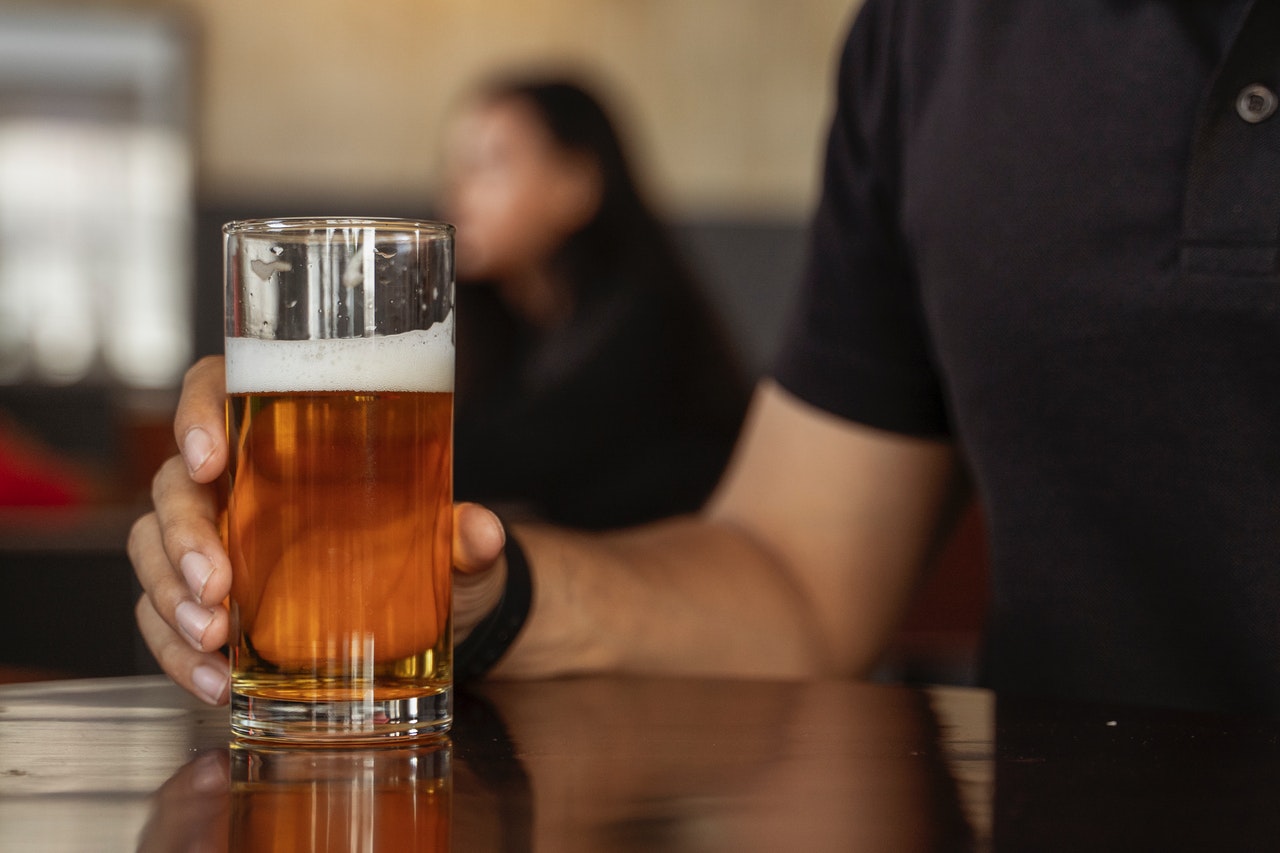Why Do I Get Sleepy When I Drink Alcohol?

Alcohol and sleep have a tricky connection. Sure, you first get sleepy after you've had a few glasses of wine or beer, but once you do fall asleep, you find it doesn't last long. Your sleep quality is bad and leaves you even more tired in the morning.
Why is that, though? Why does alcohol consumption make you fall asleep faster but then affects your sleep cycle?
How Does Alcohol Affect Brain Activity?
Alcohol is considered a depressant of the nervous system, which means it slows down your brain activity. It can affect your "mood, behavior, and self-control," your motor skills and coordination, and your thinking and memory.
As it turns out, alcohol has a really strong effect on our CNS—our central nervous system. Alcohol enters our bloodstream in a relatively short amount of time: approximately 20 minutes after you start drinking. And because it's a particularly tiny molecule, once it's in the bloodstream, it easily crosses the so-called blood-brain barrier (BBB), affecting the neurons (brain cells).
And once inside the brain, alcohol targets specific protein molecules that slow down the firing of neurons, causing you to feel relaxed, sleepy, and even sedated. That's why you also forget stuff when you've had a little too much or your movements start to become uncoordinated, and you can't concentrate.
It’s also worth noting that different people have different alcohol tolerance. People with high tolerance tend to need more drinks in order to feel these effects, and people with low tolerance need less.
How Does Alcohol Affect Sleep?
Even though alcohol consumption slows you down and makes you sleepy, ultimately, it has negative effects on your sleep. Longtime use of alcohol can even cause sleep disorders.
A couple of hours after you've had drinks, alcohol raises the levels of a particular stress hormone called epinephrine, which is responsible for general body stimulation and elevating your heart rate. As you may have guessed by now, this can also cause you to wake up at night. You may also experience frequent waking up in the middle of the night because alcohol is a diuretic, meaning it makes you pee more often.
What's more, alcohol also relaxes your throat muscles, which, in turn, can make any underlying conditions that affect your breathing during sleep—like sleep apnea, for example—even worse.
Alcohol also messes with your sleep cycle and the phases of REM sleep (rapid eye movement) and NREM sleep (non-rapid-eye movement). This means that, since alcohol has sedative properties, it'll make you fall into deep sleep faster than usual.
However, this is not really a good thing because as the night goes on, it creates an imbalance between the REM sleep and NREM sleep (deep sleep is a part of NREM sleep, and it's also called slow-wave sleep). This imbalance can make you enter more REM sleep phases and less NREM, thus affecting your sleep quality as well as the duration of your sleep.
Also, alcohol's sedative effects can make you feel drowsy and tired in the morning, resulting in excessive daytime sleepiness and headaches.
Conclusion
As you were able to see here, alcohol consumption can wreak a bit of havoc on our bodies and in our sleep. That's why moderation is key here.
There's nothing wrong with consuming alcohol in moderate amounts, which means "no more than 10 standard drinks a week and no more than four standard drinks on any one day." When it comes to alcohol, the less you consume, the better your sleep and overall health.
In any event, when you drink alcohol, it's very important to try to hydrate yourself more. Drink water in parallel with the drinks you're having. Eat something as well, which will give your body more energy and nutrients to deal with the alcohol effects. Lastly, don't forget that bottle of water on your bedside table once you get home! Bonus points if you have some comfy sheets to slide into after a long day of drinking!
Sources:
- https://medlineplus.gov/alcohol.html
- https://www.livescience.com/58990-why-drinking-alcohol-makes-you-sleepy.html
- https://www.drinkaware.co.uk/facts/health-effects-of-alcohol/effects-on-the-body/why-does-alcohol-make-you-pee-more
- https://www.health.harvard.edu/mind-and-mood/alcohol-and-fatigue
- https://www.sleepfoundation.org/nutrition/alcohol-and-sleep
- https://www.health.gov.au/news/australian-alcohol-guidelines-revised
